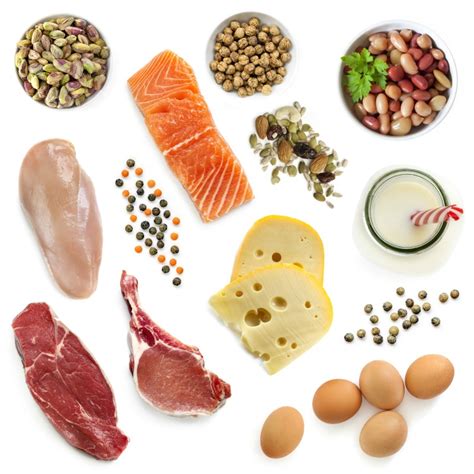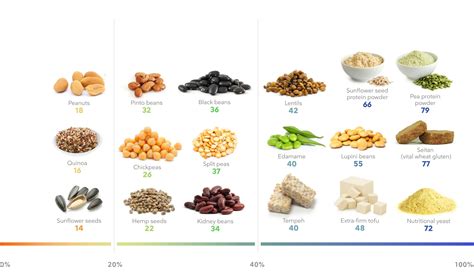What’s the optimal daily protein for muscle, energy & recovery?

Protein is one of the three essential macronutrients, playing a pivotal role far beyond just building impressive biceps. It’s fundamental for virtually every physiological process in the human body, from hormone production and immune function to enzyme synthesis. For those committed to fitness, whether aiming for muscle gain, improved athletic performance, or efficient recovery, understanding the optimal daily protein intake is crucial for unlocking peak physical potential.
The Foundational Role of Protein: More Than Just Muscle
While often celebrated for its muscle-building capabilities, protein’s contributions extend to providing sustained energy and facilitating robust recovery. It’s a complex macronutrient made up of amino acids, often referred to as the ‘building blocks’ of life. Without adequate protein, your body struggles to repair tissues, generate new cells, and maintain critical bodily functions.

Protein for Muscle Growth and Repair
For muscle growth, known as hypertrophy, protein is indispensable. Resistance training creates microscopic tears in muscle fibers, and protein provides the amino acids needed to repair these tears, making the muscles stronger and larger. This process, called muscle protein synthesis (MPS), is directly stimulated by protein intake, particularly by essential amino acids like leucine. Consuming enough protein ensures a positive nitrogen balance, which is vital for an anabolic (muscle-building) state.
Protein for Sustained Energy and Satiety
While carbohydrates and fats are primary energy sources, protein can also contribute to energy production, especially during prolonged exercise or periods of calorie restriction through gluconeogenesis. More importantly, protein has a high thermic effect of food (TEF), meaning your body expends more energy to digest and metabolize it compared to carbs or fats. This, combined with its profound effect on satiety, helps manage hunger and stabilize blood sugar, preventing energy crashes and supporting overall energy levels throughout the day.

Accelerating Recovery and Reducing Soreness
Post-workout recovery is where protein truly shines. Adequate protein intake after exercise helps kickstart muscle repair, replenish glycogen stores (when consumed with carbohydrates), and reduce muscle damage. This minimizes delayed onset muscle soreness (DOMS) and prepares your body for the next training session sooner. Furthermore, amino acids from protein play a role in immune function, helping your body defend against illnesses often heightened by intense training.
Determining Your Optimal Daily Protein Intake
There’s no single magic number for everyone, as optimal protein intake is highly individualized. It depends on several factors, including your activity level, age, body weight, and specific fitness goals. However, scientific consensus provides clear guidelines for various populations.

Factors Influencing Your Protein Needs
- Activity Level & Training Intensity: Athletes and individuals engaging in regular intense exercise (especially resistance training) require more protein than sedentary individuals.
- Age: Older adults (over 50) may need slightly higher protein intake to counteract age-related muscle loss (sarcopenia) and maximize MPS.
- Body Composition Goals: If you’re aiming to build muscle, a higher intake is beneficial. If you’re in a calorie deficit for fat loss, increased protein can help preserve lean muscle mass.
- Overall Health Status: Certain medical conditions might influence protein requirements, so consult a healthcare professional if applicable.
General Guidelines for Different Goals
- Sedentary Adults: The Recommended Dietary Allowance (RDA) is 0.8 grams of protein per kilogram of body weight (0.36g/lb). This is a minimum to prevent deficiency, not necessarily optimal for health or fitness.
- Active Adults & Endurance Athletes: For maintaining muscle and supporting recovery, 1.2-1.7 g/kg (0.5-0.8 g/lb) of body weight is generally recommended.
- Strength & Resistance Training (Muscle Gain): To maximize muscle hypertrophy and strength gains, 1.6-2.2 g/kg (0.7-1.0 g/lb) of body weight is often cited as the optimal range. Some research suggests even higher for very lean individuals or during caloric deficits.
- Weight Loss/Calorie Deficit: To preserve lean muscle mass during weight loss, 1.8-2.7 g/kg (0.8-1.2 g/lb) of body weight can be beneficial due to protein’s satiating effect and muscle-sparing properties.

Quality Sources and Timing Strategies
Beyond quantity, the quality and timing of your protein intake also matter. Prioritize complete protein sources that contain all nine essential amino acids, such as lean meats, poultry, fish, eggs, dairy, and soy. For plant-based diets, combining various protein sources (e.g., legumes with grains) throughout the day can ensure a complete amino acid profile.
Distributing your protein intake evenly across meals (e.g., 20-40 grams per meal) has been shown to be more effective for stimulating MPS than consuming the bulk of your protein in one sitting. Consuming protein before and/or after workouts can also optimize recovery and muscle repair.

Conclusion: Fuel Your Body Wisely
Optimal daily protein intake is a cornerstone of any effective fitness and nutrition strategy. By understanding your individual needs and consistently consuming adequate high-quality protein, you can effectively support muscle growth, maintain stable energy levels, and significantly enhance your recovery process. Fueling your body wisely with the right amount of protein is an investment in your strength, vitality, and overall well-being.









